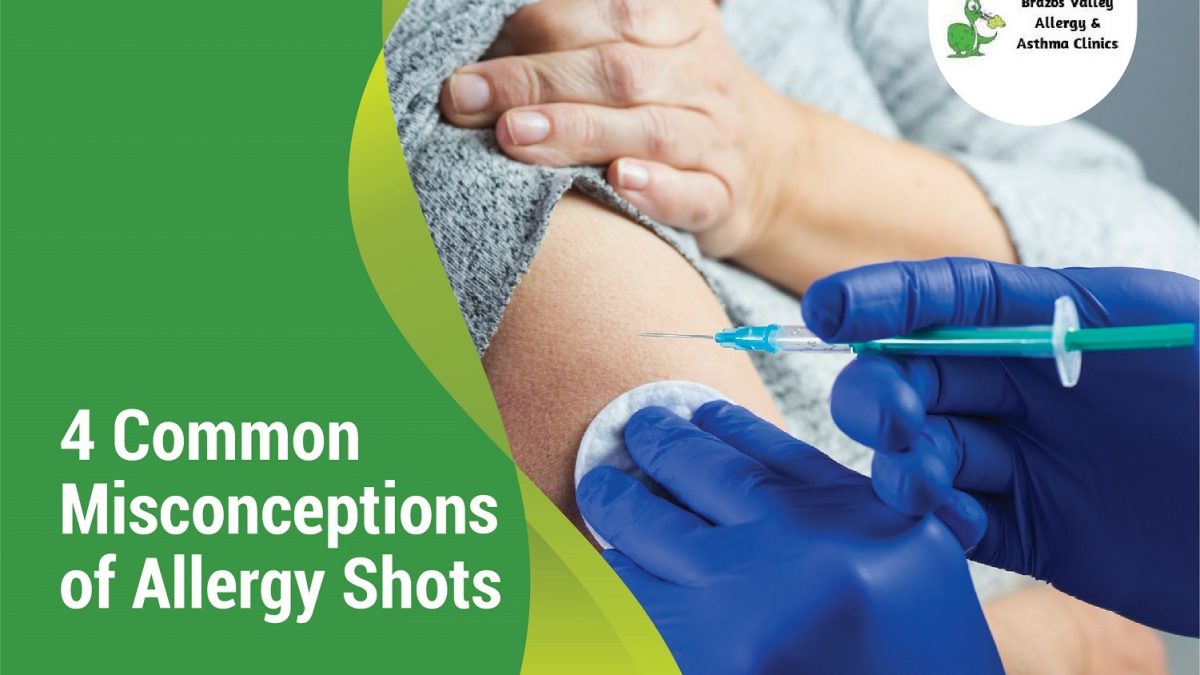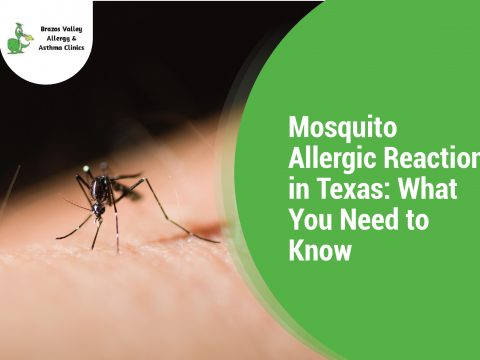- 979-485-9287
- office@bvallergy.com
-
 979-251-7804
979-251-7804
4 Common Misconceptions of Allergy Shots

Different Methods in Diagnosing Food Allergy
July 14, 2020
6 Reasons Why You Should Take Allergy Shots
August 14, 2020Overview
More than 50 million Americans experience different types of allergies each year. It is even the 6th leading cause of chronic illness in the U.S. Because of the convenience that over-the-counter medications provide, most people with allergies treat their condition with oral medicine to counteract the allergic reaction. They don’t usually pay attention to other treatments such as immunotherapy in the form of allergy shots.
What are Allergy Shots?
Allergy shots are a highly efficient way to treat allergies in both adults and children. According to the American Academy of Allergy, Asthma, and Immunology, allergen immunotherapy, also known as allergy shots, is a form of long-term treatment that decreases symptoms for many people. Allergy shots decrease the sensitivity to allergens and often leads to lasting relief of allergy symptoms even after you stop the medication. Although allergy shots are cost-effective and beneficial to people with allergies, some are still having second thoughts about its effectiveness. The hesitation is mostly attributed to the misconceptions surrounding the treatment.
If you’ve been living with allergies, then I’m sure you’ve heard a lot of myths about allergy shots. Here are some misconception about allergy shots:
-
Allergy shots don’t work.
In an article published by Harvard Health Publishing, allergy shots are a treatment that can help prevent or minimize allergic reactions. When a person is allergic to an allergen, his immune system reacts to the substances that are common in the environment, such as pollen or pet dander. Allergy shots change the way our immune system reacts to allergens. It tolerates the allergen in our bodies. What is fascinating about allergy shots is that your doctor can personalize the treatment to each patient. A person is only given an allergy shot once a specific allergy trigger has been identified. The article also discusses how allergy shots are often recommended for people with severe allergy symptoms who do not respond well to the usual medications. Allergy shots are also useful and beneficial to those people whose allergies can become life-threatening.
-
Allergy shots are painful and have severe side effects.
Allergy shots are generally safe, and most people do not have any adverse reactions. A person may develop swelling or redness at the injection site. However, these mild reactions are typically just treated with antihistamines. Some patients also experience mild to moderate symptoms after the injection. Some of the symptoms include nasal congestion, watery eyes, or sneezing. After getting an allergy shot for the first time, your doctor may ask you to stay in the office to monitor your reactions.
A more severe reaction seldom occurs after the shot, but they have happened in some cases and caused asthma symptoms, including wheezing, coughing, or difficulty breathing. It is also possible that an anaphylactic reaction will cause nausea, dizziness, or swelling in the throat. However, they can just be treated in the office, but there are circumstances where treatment is done in the hospital.
-
Allergy shots require too much time and are expensive.
According to the American College of Allergy, Asthma, and Immunology, depending on how bothersome the allergies are, allergy shots can save money and quality of life. A study was conducted, and the results showed that immunotherapy reduces the healthcare cost in children with allergic rhinitis or hay fever by one-third. As mentioned earlier, allergy shots help your body tolerate an allergen. As your tolerance to the allergen increases, your symptoms will significantly decrease. You will not need much medication to relieve your symptoms. It will allow you to save sick days and money.
Many people think it is time-consuming because most patients will need shots every week for the first six months and monthly for about three years. However, the procedure is pretty much straightforward. When you get an allergy shot, a small amount is injected into your skin. As time passes, the allergen doses will gradually increase with each injection until your body can tolerate large amounts of the allergen. It might take a long time before you fully reap the benefits and the effectiveness of the treatment. However, it can be an excellent long-term solution when they work well.
-
Allergy shots are useful only for severe cases of allergic reactions.
If you have a quick Google search about the different treatments for allergies, you might get advised that seeking immunotherapy treatment is only needed once you’ve reached the “last resort.” It means that you have already tried everything to treat your allergies. However, immunotherapy does not need to be your last resort of treatment. It should be first. Allergy shots help about 80 percent of patients with allergic rhinitis. Shots can even potentially cure your allergies so that you won’t need other medication. There is some evidence that suggests that immunotherapy can keep you from developing additional allergies and asthma.
Conclusion
Knowing facts from fiction can help you make the right decision when it comes to your health. It makes the difference between misery and relief. All these misconceptions listed about allergy shots have led people to doubt its effectiveness in treating allergies. But now you know.
Dr. Paul Jantzi has spent more than 13 years serving the south-central Texas region as an allergist. He is board-certified in allergy and immunology with prior specialty training in pediatrics and internal medicine. Schedule a meeting with him to learn more about immunotherapy and how it can help with your allergy symptoms.
Disclaimer: Information on this website is not intended to be used in place of your professional medical advice or treatment. Please consult your doctor or healthcare provider with any questions regarding a medical condition.
REFERENCES:
American Academy of Allergy, Asthma, and Immunology, allergen immunotherapy




